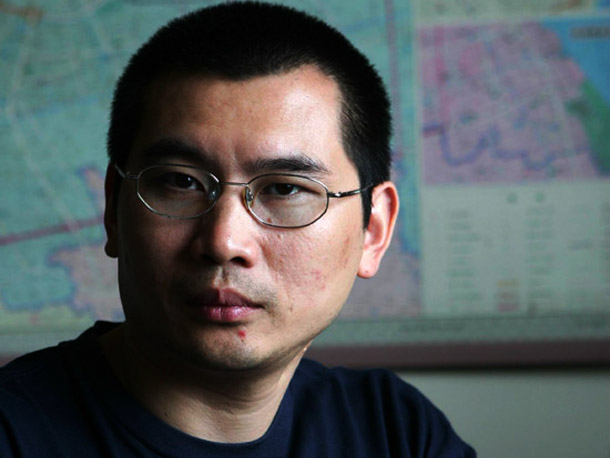 Dharamshala, India: Leading Chinese journalist Zhang Ping says he has been forced out of his job this week amid tightened restrictions on the media; the latest sign of China's tightening grip on press freedoms. Chang was reportedly fired from his job and lost his status with his work unit because he continued to post a variety of articles related to Tibet and later about corruption.
Dharamshala, India: Leading Chinese journalist Zhang Ping says he has been forced out of his job this week amid tightened restrictions on the media; the latest sign of China's tightening grip on press freedoms. Chang was reportedly fired from his job and lost his status with his work unit because he continued to post a variety of articles related to Tibet and later about corruption.
Zhang, who is better known as Chang Ping, is an influential editor and columnist who had worked at the Southern Media Group - one of the country's best respected news organisations - for many years. The Chinese communist regime is set to strengthen media censorship; In China, the communist government blocks Tibet, corruption and other political contents, while in fact it is censoring any oppositional views toward the regime.
China's censors routinely scrub domestic news and online content of material they consider destabilising or threatening to the communist leadership, but the Internet is so vast and porous that forbidden information increasingly gets through to the public. This has emboldened many Chinese journalists and publications to push the boundaries in their reporting, a trend the government is trying to contain.
Chang's employer confirmed he had been let go but wouldn't say why. "Chang Ping's contract expired and it was not renewed," said a woman surnamed Deng who answered the phone at the Southern Metropolis Daily, one of the papers Chang used to write for. She said editors were too busy to be interviewed and that the paper had nothing more to add about the situation.
Chang, 42, drew fire from authorities and other domestic columnists in 2008 when he wrote an editorial saying that foreign media should be allowed to report first-hand on 2008's bloody crackdowns on Tibetans in all parts of Tibet and advocating dialogue between the Chinese government and Tibet's spiritual leader His Holiness the Dalai Lama. He has also written about corruption and China's need for greater political and personal freedoms.
"Things have got a lot tighter in recent weeks." Among the issues flagged by concerned journalists are new restrictions on financial reporting, the recent sacking of a reporter at the Chengdu Commercial Daily, and the decision to place an editor at Time Weekly on involuntary leave. He had published a list of 100 influential people which included a jailed activist and several dissidents.
Southern Media Group's two main publications, Southern Metropolis Daily and Southern Weekend, stopped publishing his commentaries six months ago, he said. The Guangzhou-based writer said that he thought his dismissal was part of a Chinese campaign against free speech and press freedom that has intensified since jailed democracy activist Liu Xiaobo was awarded the Nobel Peace Prize in November.
"I am very angry that I've been punished for my words," Chang said. "The bigger picture, the background is that I am not the only one. There have been other editors recently with other papers that have been dealt with as well."
He cited two recent incidents documented by the Hong Kong-based China Media Project, which keeps track of media reform trends in mainland China. The first was the firing of Long Can, a journalist with the Chengdu Commercial Daily in Sichuan who was dismissed last week after writing about official negligence and influence peddling related to the botched rescue of a group of university students in a remote scenic area. Because of mishandling, a police officer died in the rescue.
He also pointed to a separate China Media Project report about Peng Xiaoyun, an editor with Time Weekly, who was forced into involuntary leave after his publication came out with a list of influential people that included a jailed Chinese food activist and several people who had signed Charter '08, a bold call for political reform co-authored by Liu, the Nobel Peace Prize winner.


![Tibet has a rich history as a sovereign nation until the 1950s when it was invaded by China. [Photo: File]](/images/stories/Pics-2024/March/Tibet-Nation-1940s.jpg#joomlaImage://local-images/stories/Pics-2024/March/Tibet-Nation-1940s.jpg?width=1489&height=878)















